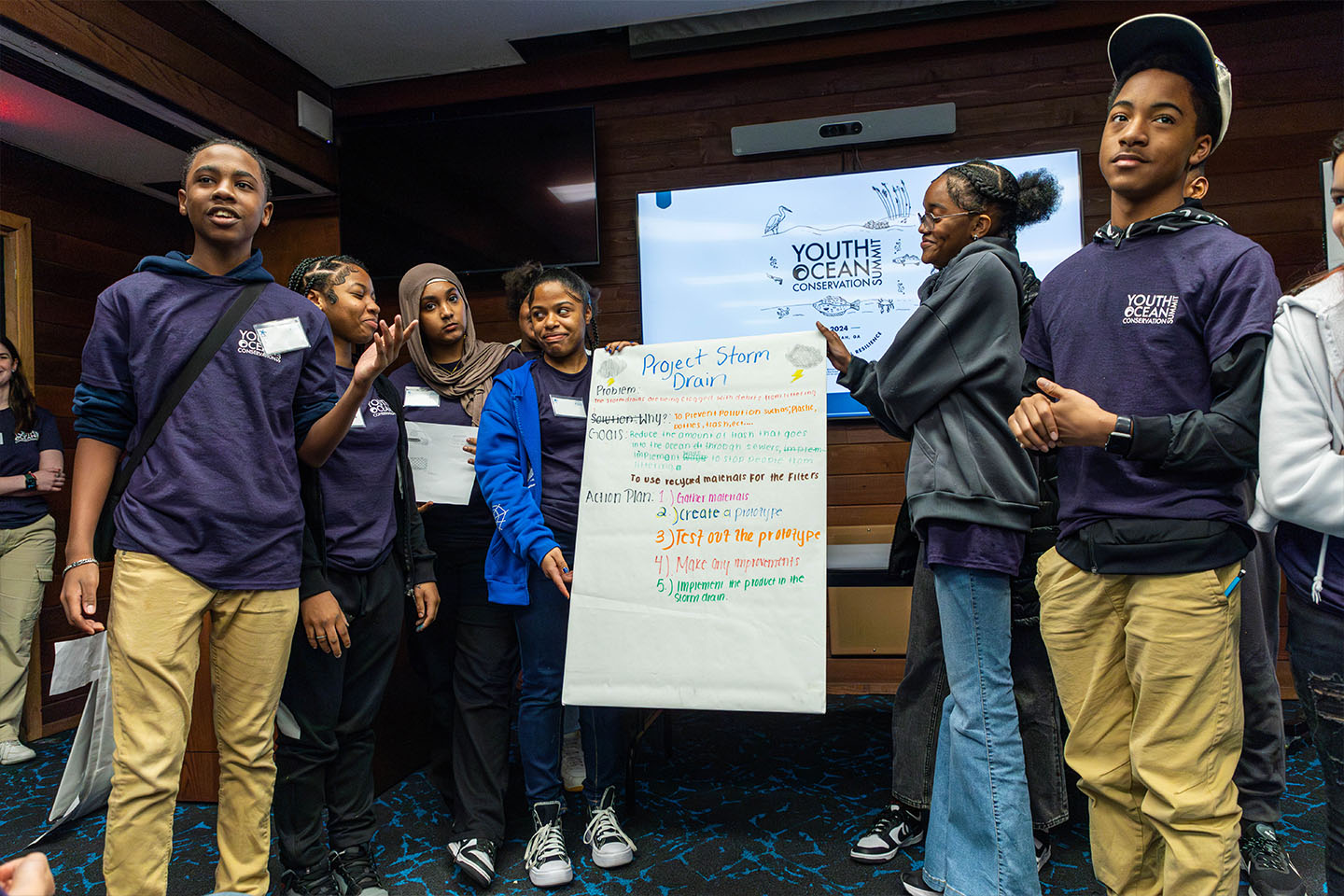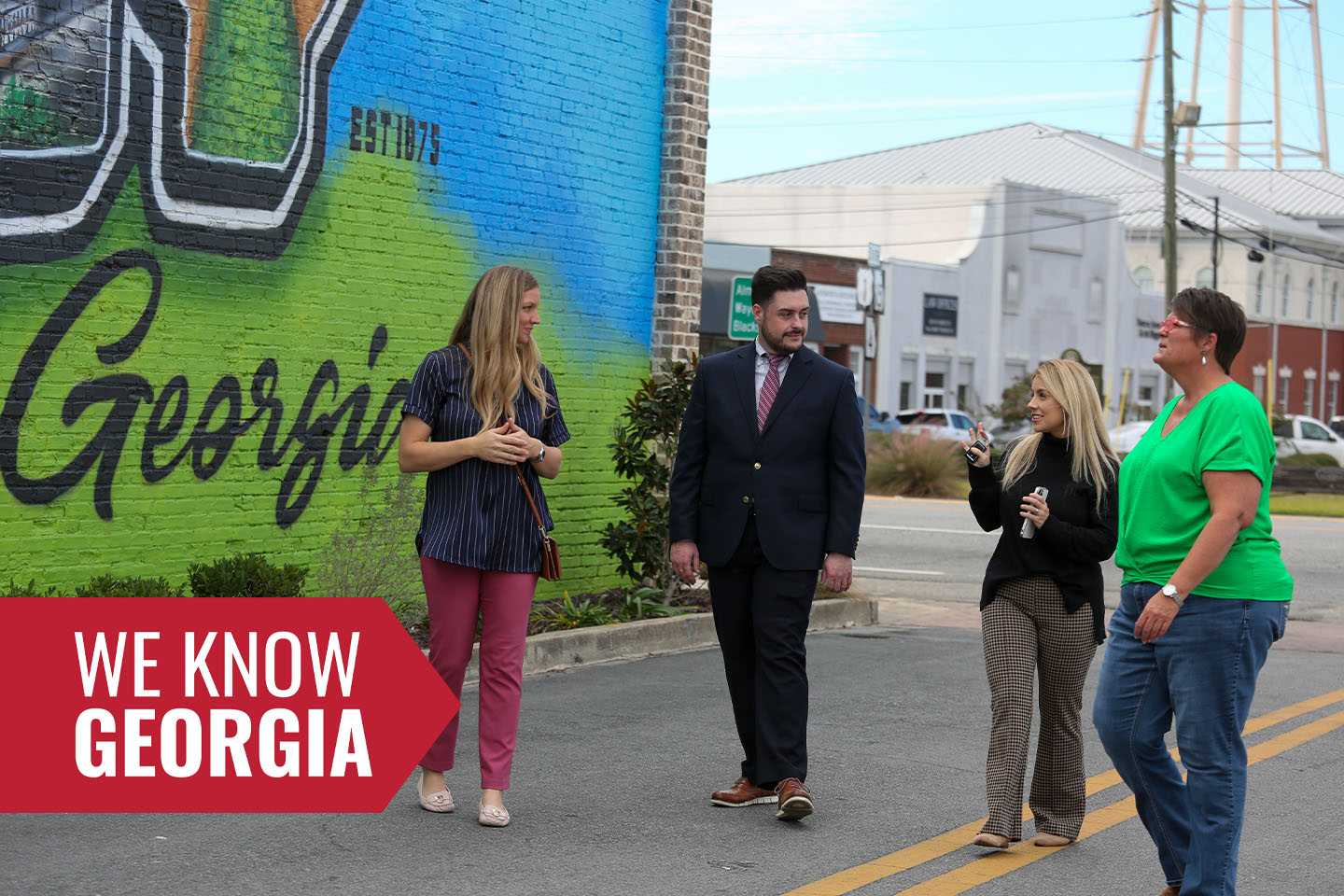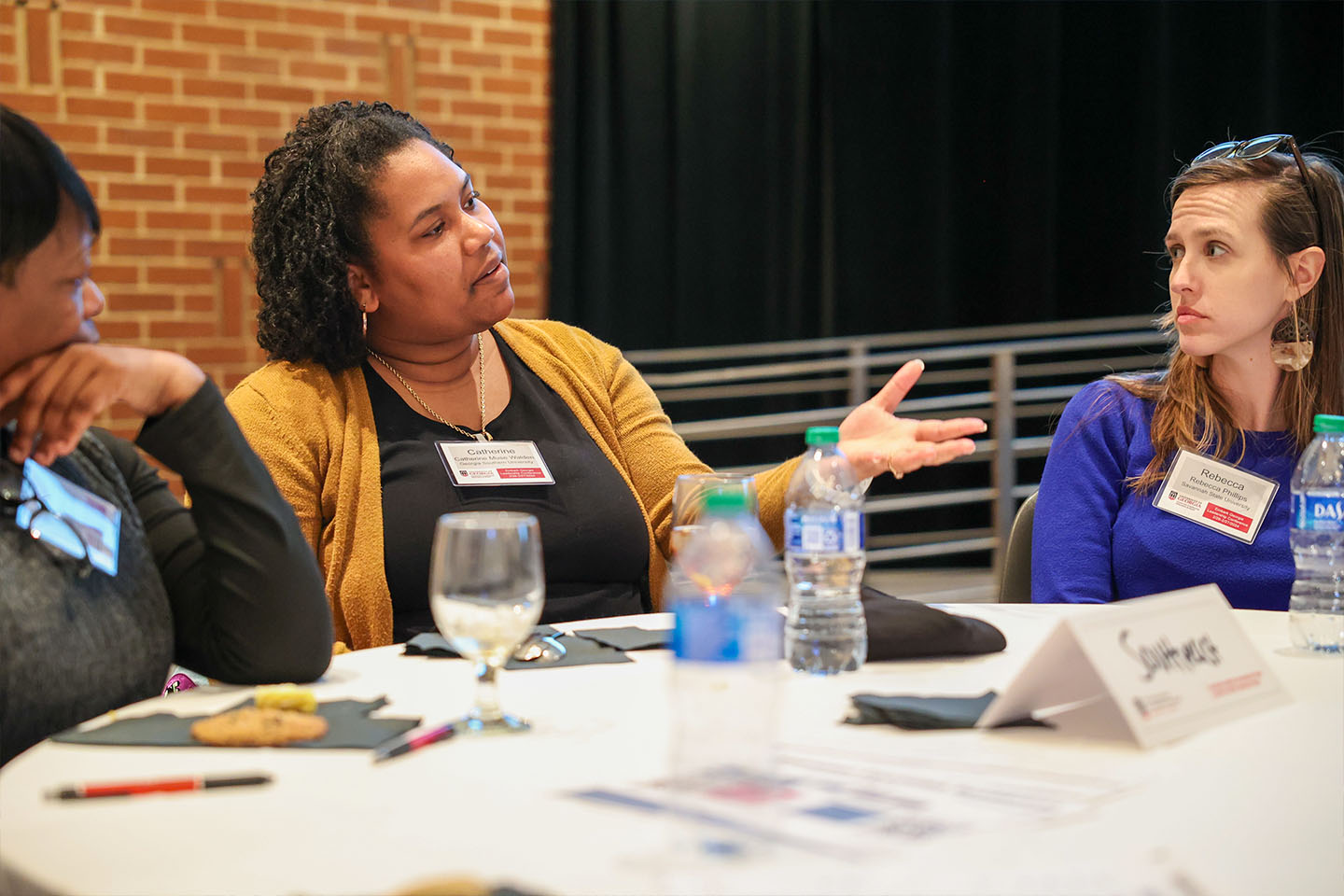Puppies graced the front page of University of California at Riverside associate political science professor Ben Bishin’s slideshow. Four Labrador Retrievers stood above his major emphasis, “Latinos in Election 2012,” in hopes to liven up the day of panels in the “Effects of the 2012 Presidential Election Conference” held Friday at the Georgia Center for Continuing Education.
But it was not all rainbows and unicorns – two other images included in Bishin’s sendoff slide – as he, along with three fellow guests, discussed the lasting impact of November’s election in a panel entitled “Presidential Campaign Politics.”
Bishin’s main focus of his speech was the divide between Cuban-Americans, who are largely conservative, and Mexican-Americans, who vote more for Democrats. Republicans that wish to capture the Hispanic voting bloc need to “extend their philosophy” and become more inclusive with their policy, Bishin said. This is especially important, he said, because Mexican-Americans voted 69 percent in favor of President Barack Obama in Florida.
Keith Poole, University political science professor, organized the event, continuing until noon on Saturday. Fellow University political science professors Trey Hood, Jamie Monogan, Charles Bullock III, Jamie Carson and Richard Vining are also participating in the conference.
“I believe that it shows how divided the country is, how polarized the country is, at all levels,” he said in regard to the major theme from the conference’s first day. “The country’s very closely divided so that any solution to the fiscal problems will be extremely difficult. “
Poole’s research emphasis centers on polarization in American politics, seen in his Voteview blog through congressional voting records analyses. He said he plans to update the blog again within the coming month with new results.
“I expect that the 112th [Congress] will set the post-Civil War record in terms of being divided,” he said.
Earlier panels brought about lively conversation about the questions left unanswered, concerning budgetary battles and the functioning of Congress in a more polarized government.
“There was a lot of discussion on the first panel about the upcoming fiscal cliff, filibuster reform in the [U.S.] Senate and dealing with the deficit and tax issue,” Carson said.
The new year will bring the revival of old conflicts left unresolved, with little indication on how things will turn out, Carson said.
“In a sense, we are exactly where we were before,” he said. “Obama claims he has a mandate, but the Republicans are still unwilling to raise taxes, so it’s unclear what’s going to happen in the next month or so.”
University of Missouri political science professor John Petrocik, a fellow panel member, focused his presentation to the conference on the incorrect polling performed during the election cycle, calling it “Misestimating the Election.”
Pollsters, Petrocik said, must “solve the problem” of getting bigger sample sizes for surveys to get better election estimates.
Saturday’s panel topics are “Forecasting the Elections” and “Roundtable: Looking Ahead to 2013 and Beyond,” which will feature Carson as moderator and Vining as a speaker. Both will take place in Room K on the Georgia Center’s second floor.



